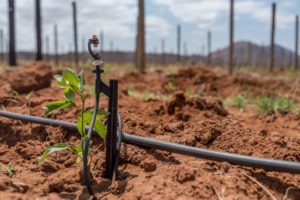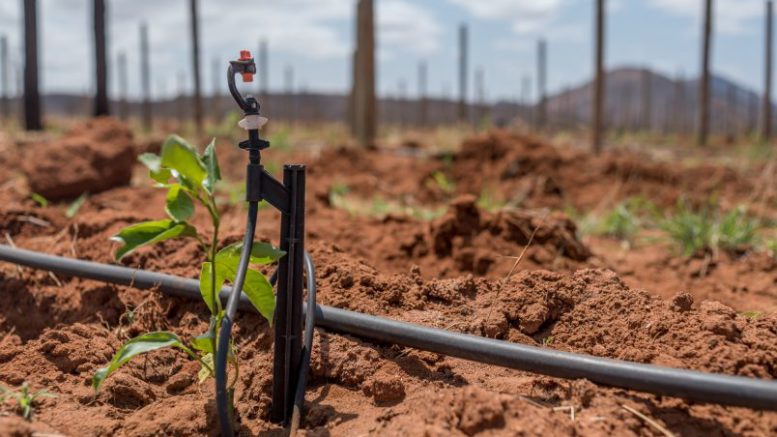2.10.2017 05:10 am

A small shoot of a granadilla tree grows on a field in Zebediela Citrus Farm in Zebediela, Limpopo on 28 September 2017. The farm has diversified it’s plantations, with a granadilla section of 100 hectares planted. Picture: Yeshiel Panchia
Since 1994, more than 80% of commercially used land returned to its indigenous owners has failed to stay economically active.
There is a worryingly simplistic view taking root in our society that simply returning land to the indigenous inhabitants of South Africa will solve all our ills.
There is no doubt that some form of land redistribution has to take place but unless this is done scientifically and systematically, land recipients are being set up to fail and there is a possibility of deprived communities ending up worse off than they were.
The harsh reality is that, since 1994, more than 80% of commercially used land returned to its indigenous owners has failed to stay economically active and provide a living for them. Nowhere is this land reform failure more evident than in the trials and tribulations of the Zebediela Citrus Estate in Limpopo.
Once a jewel in our agricultural crown, at its peak it was one of the biggest citrus producers in the southern hemisphere, providing significant export revenue and jobs for hundreds of people. The estate’s land was returned to the community but attempts to get an operating company to run the business failed, with the result that the community saw no return from the land and jobs were lost.
Then, earlier this year, a Russian investor, working with a local company, promised a R100 million cash injection to help stave off liquidation for the operating company. And, although it is early days yet, the partnership between the investor, the company, the workers and the community that owns the land appears to be working.
Lands are being rehabilitated. New machinery has been bought and production lines reopened. A number of fixed jobs have been provided, with additional seasonal work for part-time employees. The community and the workers will take 50% of the profits. This is how it should be done, because land reform is too important to be allowed to fail.

